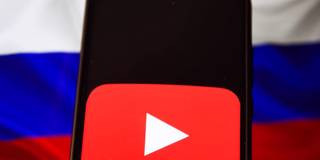After decades of having no alternative to state-controlled TV, Russians have increasingly begun to tune in to a new, fact-based reality online. Thanks to YouTube, serious, fair-minded journalists can now reach massive audiences and generate advertising revenue, and there is little the Kremlin can do about it.
MOSCOW – Television has occupied a prominent place in Russian households for generations. Relaxing while watching the news after a long day of work is a time-honored routine for many Russians. You might scream back at the people on the screen, but you remain glued to it nonetheless. In the Soviet era, the broadcasters would shamelessly lie across all six channels; today, they lie even more aggressively, and across even more channels.

MOSCOW – Television has occupied a prominent place in Russian households for generations. Relaxing while watching the news after a long day of work is a time-honored routine for many Russians. You might scream back at the people on the screen, but you remain glued to it nonetheless. In the Soviet era, the broadcasters would shamelessly lie across all six channels; today, they lie even more aggressively, and across even more channels.